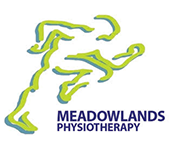Knee Pain: What to Do, What to Avoid
At some point in your life whether at work, while performing your sport, running, or even just headed up the stairs, you are likely to develop knee pain. It is one of the most common complaints that prompts people to pursue physiotherapy. Unfortunately, it is also one of the pains that people most struggle to treat on their own, without the help of a professional. That’s partly because while a short course of rest is great for acute knee pain, too much rest will actually worsen the injury. It is important to develop an informed plan to get back on your feet, gently, to promote healing. That’s where a physiotherapist can help. Discover what you can do about your knee pain in the first days after the injury, and weeks down the road, to reach a full recovery.
Dealing with Knee Pain in the Short Term
In the moments after a knee injury or when you start to experience knee pain, it is important to take the issue seriously. Even minor pain can get worse over time, so you should address any pain immediately. Take steps to reduce swelling and promote proper blood flow in order to give the knee the best chances of healing.
Also, consider that more serious injuries may require a trip to the doctor’s office. You should consider seeing a physician or physiotherapist if:
- Your knee pain is severe
- The knee struggles to bear weight
- It cannot fully extend or flex
- There is an obvious break, dislocation, or a lot of swelling
- You have other symptoms, such as a fever
Dealing with Knee Pain in the Long Term
If you have dealt with your knee pain for a few days and taken the right steps to ease its pain, you are likely ready to start using it again. Doing so is important to maintain muscle strength and flexibility in the tendons that support the knee—or the injury may get worse over time. It is often wise to get a physiotherapist’s opinion on which exercises you can do, and should do, to help your knee heal and avoid further harm. Other long-term strategies for dealing with knee pain include:
- Improving form: When your knee injury is caused by less-than-ideal form, it is important to take the time to correct those form issues and ensure you are moving safely and efficiently for your sport or activity.
- Losing weight: Extra pounds place added pressure on joints, and knees have to bear most of this stress. Losing weight can help prevent future knee injuries and help the current injury heal.
- Changing activity: If you have arthritis or another cause of long-term knee pain, you may need to change how you exercise. A physiotherapist can guide you here as well so that you can continue to stay active without agitating your knee problems.
Physiotherapy Support for Knee Pain
Your physiotherapist is your most vital support for your knee’s recovery. They will create a customized exercise or other treatment plan that is geared specifically towards you and your knee, taking into account the cause of your pain and any individual considerations that apply to your lifestyle. Usually, it will involve forms of strength training to help develop muscles to better support your knee, including exercises like hamstring curls, wall squats, and straight leg lifts.
Contact Meadowlands today to discuss your knee pain, and develop a customized plan to support you through your recovery.

